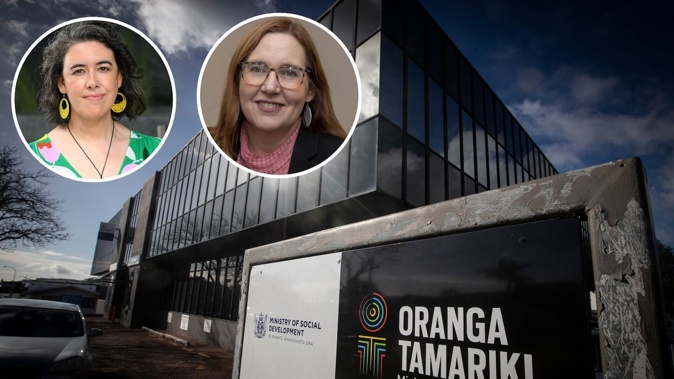
Northland’s social workers are among the most stretched in the country, with caseloads above the national average.
In a recent response to a parliamentary question, the Ministry for Children’s Karen Chhour responded, saying that more than a dozen social workers in the region are currently responsible for 20 or more children each.
The figures show that 14 social workers across the region are responsible for 20 or more children each. Five social workers in Kaikohe were managing caseloads of more than 20 children each, with similar pressures facing six social workers in Whangārei, two in Kaipara and one in Kaitāia.
Anya Tahere, Oranga Tamariki (OT) regional commissioner in Te Tai Tokerau, said they are seeing an increase in the number of reports of concern made to the agency across the board, which is resulting in higher caseloads for some kaimahi (workers), including those in Te Tai Tokerau.
“The average caseload for a care and protection social worker is 17 children. We recognise some social workers have higher caseloads, particularly if sites are experiencing high vacancies,” Tahere said.
She added that while there is no formal social work caseload limit, their caseload protocol recognises that more than 20 children “is likely to be a high workload”.
“Managers are required to support social workers to ensure their workload remains manageable, as well as encouraging kaimahi to check in, jointly assess workload and have access to extra help when needed.”
She said OT has been improving support for social workers with initiatives that aim to free up the time of OT kaimahi.
“Oranga Tamariki is continuing to recruit new kaimahi, including in Te Tai Tokerau. We are incredibly proud of our kaimahi in Te Tai Tokerau, who work hard to achieve the best outcomes for tamariki, rangatahi and whānau every single day.”
PSA national secretary Fleur Fitzsimons said the current social workers’ workload is not just high, it’s unsafe and unsustainable.
“Site offices in Te Tai Tokerau have a generally higher proportion of social workers with high or excessive caseloads than the average region.”
 PSA national secretary Fleur Fitzsimons.
PSA national secretary Fleur Fitzsimons.
Fitzsimons said is a topic that is frequently raised by some members.
“We want the Government to fund social services and ensure social workers and community workers are valued, not subjected to funding freezes, cuts and restructures,” she said.
We need more investment, not less, to recruit and retain care and protect social workers by ensuring workloads are at safe and manageable levels.”
Chief Children’s Commissioner Dr Claire Achmad said she was concerned that social workers in Te Tai Tokerau and nationwide were faced with higher workloads.
 Chief Children’s Commissioner Dr Claire Achmad says she’s concerned about the heavy caseloads being carried by social workers in Northland.
Chief Children’s Commissioner Dr Claire Achmad says she’s concerned about the heavy caseloads being carried by social workers in Northland.
“It’s important that social workers are able to spend quality time with the mokopuna who they are there to support. I’ve heard from mokopuna how important a strong relationship with their social worker is, and the difference that this makes in meeting their care and protection needs.”
She said it is important that Oranga Tamariki continues to focus on ensuring social workers are able to do their best work every day.
“Part of this is Oranga Tamariki doing all it can to make sure workloads, including caseloads, are manageable, and for the agency to be well-resourced to do its work really well, because its work is about the safety of mokopuna, and preventing harm.”
She said she will continue to keep in close touch with Oranga Tamariki leadership about the high caseloads in the Northland region.
“I continue to encourage everyone in communities around the country to keep playing your part to look out for mokopuna and to prevent harm. Keep bringing forward concerns about the safety of mokopuna if you have them. We all have a part to play in looking after our mokopuna, so that they can always be safe.”
Take your Radio, Podcasts and Music with you









